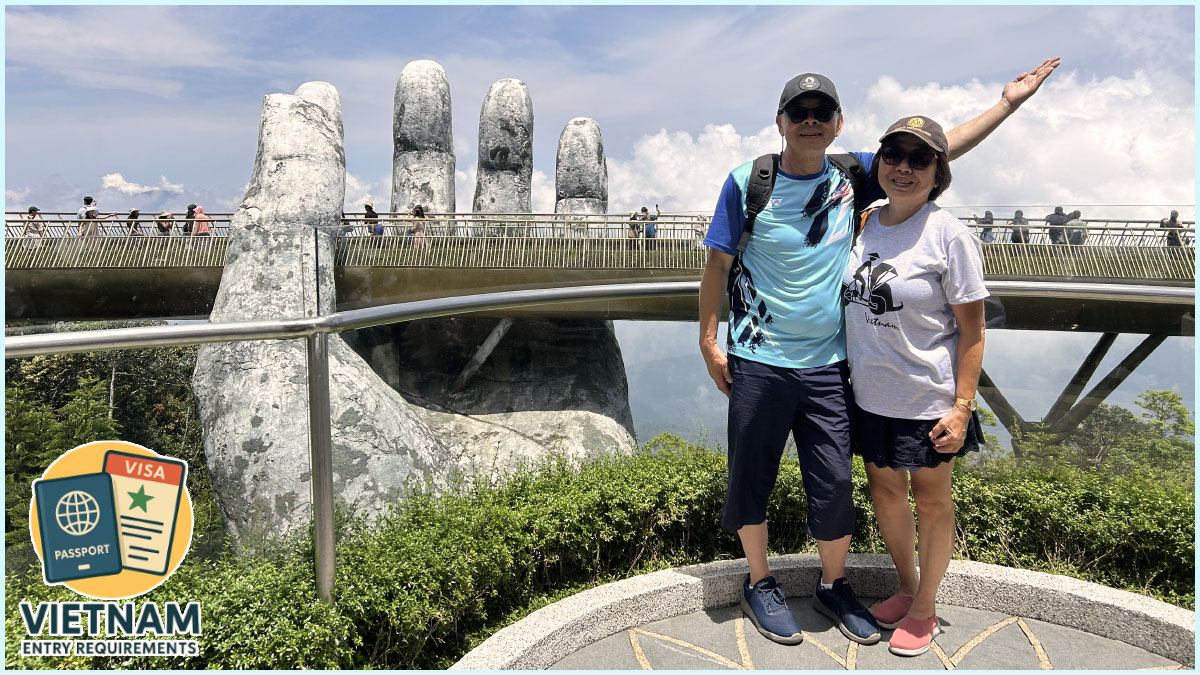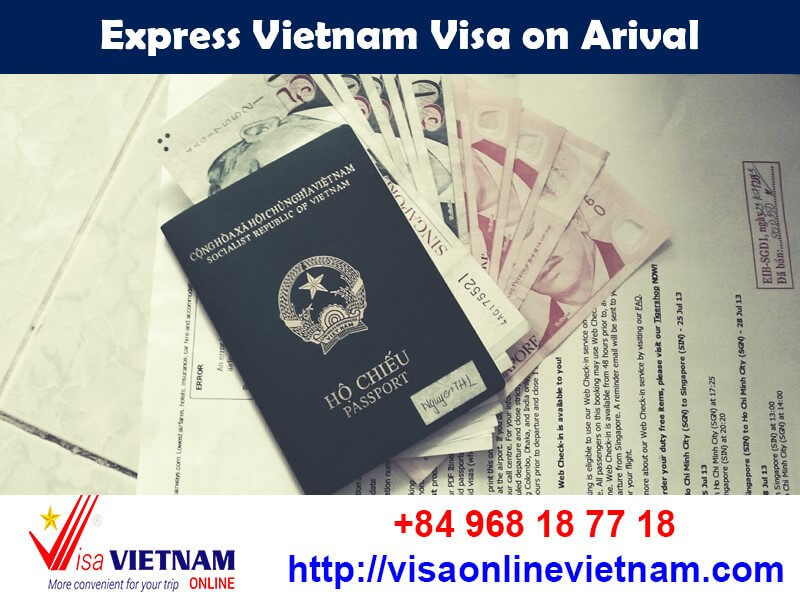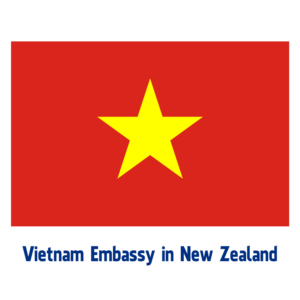
Vietnam Awaits – How to Travel to Vietnam Legally in 2025
This comprehensive guide provides all the essential information on how to travel to Vietnam legally in 2025, covering visas, entry requirements, customs regulations, and practical tips for a smooth and enjoyable trip.
Understanding Vietnam’s Visa Requirements for 2025

Navigating the visa landscape is the crucial first step when planning any international trip. For those wondering how to travel to Vietnam legally in 2025, understanding the different visa options and their specific requirements is paramount. The Vietnamese government offers various visa types tailored to different purposes of visit, from tourism and business to education and employment. Choosing the right visa and understanding its validity period are key to ensuring a seamless entry and stay in the country.
Tourist Visas: The most Common Entry Path
The most common visa type for leisure travelers wondering how to travel to Vietnam legally in 2025 is the tourist visa. These visas are typically valid for either a single entry or multiple entries within a specified period, usually 30 or 90 days. To obtain a tourist visa, you’ll generally need a valid passport, a completed visa application form, passport-sized photos, and sometimes proof of your travel itinerary and accommodation. The applicant may need to demonstrate sufficient funds to cover your expenses throughout your stay too.
However, things might change until 2025. It is always wise to check with the local embassy before making the trip.
The visa application can be submitted either through the Vietnamese embassy or consulate in your country or through the online e-visa portal. The e-visa option has become increasingly popular due to its convenience and speed. However, it’s essential to apply well in advance of your trip, as processing times can vary. Also, you must make sure you are applying on an official website, beware of malicious websites.
Keep in mind that visa regulations can change, so it’s always recommended to check the latest information from the official website of the Vietnamese Immigration Department or the Vietnamese embassy or consulate in your country before making your travel plans.
Business Visas: Navigating Corporate Travel
If your trip to Vietnam is for business purposes, you’ll need a business visa. Business visas typically require additional documentation, such as an invitation letter from a Vietnamese company or organization, proof of your company registration, and a detailed itinerary of your business activities in Vietnam.
Similar to tourist visas, business visas can be single-entry or multiple-entry, depending on your needs. The validity period of a business visa is usually longer than that of a tourist visa, allowing you more flexibility for your business dealings.
When applying for a business visa, it’s crucial to ensure that all your documents are accurate and complete. Any discrepancies or omissions can result in delays or rejection of your application. It’s also important to comply with all Vietnamese business regulations and laws while you’re in the country.
Other Visa Types: Exploring Additional Options
Besides tourist and business visas, several other visa types are available for specific purposes, such as student visas, work visas, and diplomatic visas. Student visas are for individuals who are enrolled in a recognized educational institution in Vietnam. Work visas are for those who have secured employment in Vietnam and have obtained a work permit. Diplomatic visas are issued to foreign diplomats and government officials who are visiting Vietnam on official business.
Each of these visa types has its own specific requirements and application procedures. It’s essential to carefully research the requirements for the visa type that’s most appropriate for your purpose of visit to Vietnam. Contacting the Vietnamese embassy or consulate in your country is a great way to obtain the most up-to-date and accurate information about visa requirements and application procedures.
Planning Your Entry and Arrival

Once you’ve secured your visa and finalized your travel plans, it’s time to focus on your entry and arrival in Vietnam. Knowing what to expect at the border and understanding Vietnamese customs regulations can help you avoid any unwelcome surprises and ensure a smooth transition into the country. For anyone curious how to travel to Vietnam legally in 2025, this phase will be crucial.
Entry Points and Border Procedures
Vietnam has several international airports, land border crossings, and seaports that serve as entry points for international travelers. The most popular international airports are Noi Bai International Airport (HAN) in Hanoi and Tan Son Nhat International Airport (SGN) in Ho Chi Minh City.
Upon arrival at your chosen entry point, you’ll need to present your passport, visa, and any other required documents to the immigration officer. The immigration officer will verify your documents and may ask you a few questions about your purpose of visit and intended length of stay.
After clearing immigration, you’ll proceed to the baggage claim area to collect your luggage. Once you have your luggage, you’ll need to go through customs inspection.
Vietnamese Customs Regulations
Vietnamese customs regulations are fairly straightforward, but it’s essential to be aware of them to avoid any potential problems. You’re allowed to bring in personal items, such as clothing, toiletries, and electronic devices, without paying any customs duties, as long as they’re for your own use and not for resale.
However, there are certain items that are restricted or prohibited from being imported into Vietnam, such as weapons, drugs, pornography, and politically sensitive materials. It’s also important to declare any currency exceeding a certain amount (usually USD 5,000 or its equivalent) to the customs authorities. Keep up to date concerning how to travel to Vietnam legally in 2025, so that you won’t do anything that can sabotage your trip.
If you’re bringing in any valuable items, such as cameras, jewelry, or laptops, it’s a good idea to declare them to the customs authorities upon arrival. This will prevent you from being charged customs duties on these items when you leave Vietnam.
Health Regulations and Vaccinations
Before traveling to Vietnam, it’s essential to ensure that you’re up-to-date on all recommended vaccinations and health precautions. Consult your doctor or a travel clinic to discuss your travel plans and get personalized advice on vaccinations and other health measures.
Some of the most recommended vaccinations include those for hepatitis A, typhoid, and tetanus. Depending on your travel itinerary and activities, you may also need vaccinations for Japanese encephalitis, rabies, or malaria.
In addition to vaccinations, it’s also important to take precautions to prevent mosquito bites, as mosquitoes can transmit diseases such as dengue fever and Zika virus. Use mosquito repellent, wear long sleeves and pants, and sleep under a mosquito net if necessary.
Cultural Sensitivities and Local Laws
Respect for local culture and adherence to Vietnamese laws are crucial for a trouble-free and rewarding travel experience. Understanding Vietnamese customs, traditions, and unspoken rules of conduct will help you build positive interactions with locals and avoid unintentional offenses. When thinking how to travel to Vietnam legally in 2025, consider the moral aspect of it.
Respecting Vietnamese Culture and Traditions
Vietnamese culture is deeply rooted in Confucianism, Buddhism, and ancestor worship. Respect for elders, family values, and social harmony are highly valued. When interacting with Vietnamese people, it’s important to be polite, courteous, and respectful.
Dress modestly, especially when visiting temples, pagodas, or other religious sites. Avoid public displays of affection and loud or disruptive behavior. When dining with Vietnamese people, wait for the host to initiate the meal and avoid pointing your chopsticks at anyone.
Giving face is an important concept in Vietnamese culture. Avoid criticizing or embarrassing someone in public, as this can cause them to lose face. If you have a concern or complaint, address it privately and respectfully.
Understanding Local Laws and Regulations
As a visitor to Vietnam, you’re subject to Vietnamese laws and regulations. It’s important to be aware of these laws and comply with them at all times.
Drug use is strictly prohibited in Vietnam, and offenders can face severe penalties, including imprisonment or even the death penalty. Gambling is also illegal, except in authorized casinos.
It’s also important to be aware of traffic laws and regulations to ensure your safety on the road. Traffic in Vietnam can be chaotic, and accidents are common. Wear a helmet when riding a motorbike, obey traffic signals, and be cautious when crossing the street.
Avoiding Scams and Petty Crime
Unfortunately, scams and petty crime can occur in tourist areas in Vietnam. Be aware of your surroundings and take precautions to protect yourself and your belongings.
Avoid accepting offers from strangers who approach you on the street. Be wary of taxi drivers who don’t use their meters or try to overcharge you. Keep an eye on your belongings in crowded areas, especially in markets and public transportation.
If you’re approached by someone offering you a suspiciously good deal, it’s probably a scam. Don’t be afraid to say no and walk away.
- Table: Useful Vietnamese Phrases for Tourists
| Phrase | Vietnamese | Pronunciation |
|---|---|---|
| Hello | Xin chào | Sin Chao |
| Thank you | Cám ơn | Cam Uhn |
| You’re welcome | Không có gì | Khong Koh Zee |
| Excuse me | Xin lỗi | Sin Loy |
| How much? | Bao nhiêu? | Bao Knee-U? |
| Where is…? | Ở đâu…? | Uh Dow…? |
Accommodation and Transportation Options
Choosing the right accommodation and transportation options can significantly impact your travel experience in Vietnam. From budget-friendly hostels to luxurious hotels, and from bustling motorbikes to comfortable taxis, Vietnam offers a wide range of choices to suit different preferences and budgets. As you learn how to travel to Vietnam legally in 2025, consider how to get around as well.
Accommodation Choices: Hotels, Hostels, and Homestays
Vietnam offers a diverse range of accommodation options, catering to all types of travelers. Budget-conscious travelers can opt for hostels or guesthouses, which offer basic amenities at affordable prices. Mid-range travelers can choose from a variety of hotels that offer comfortable rooms and services. Luxury travelers can indulge in high-end resorts and boutique hotels.
For a more immersive cultural experience, consider staying in a homestay. Homestays allow you to live with a local family and learn about Vietnamese culture firsthand. You’ll also get to enjoy home-cooked meals and participate in daily activities with your host family.
When choosing accommodation, it’s important to consider the location, amenities, and reviews from other travelers. Read online reviews and compare prices before making your reservation.
Transportation Options: Motorbikes, Taxis, and Public Transport
Vietnam has a well-developed transportation network, making it easy to get around the country. Motorbikes are the most popular mode of transportation, especially in cities. However, traffic can be chaotic, so it’s important to be careful and wear a helmet.
Taxis are readily available in cities, but it’s important to use reputable taxi companies and ensure that the meter is running. Alternatively, you can use ride-hailing apps such as Grab.
Public transportation options include buses and trains. Buses are the most affordable way to travel between cities, but they can be crowded and uncomfortable. Trains are a more comfortable option, but they can be slower and more expensive.
Domestic Flights: A Quick Way to travel among big cities
For long-distance travel, domestic flights are a convenient option. Vietnam has several domestic airlines that operate flights between major cities. Booking your flight in advance can save you money. Although it can be more beneficial to immerse yourself in the beauty of the country using alternate modes of transportation.
Staying Connected: Communication and Internet Access
Staying connected with friends and family back home and having access to information online can enhance your travel experience in Vietnam. Fortunately, Vietnam has a well-developed telecommunications infrastructure, making it easy to stay connected. When figuring out how to travel to Vietnam legally in 2025. Plan to get a way to contact with people back home.
Buying a Local SIM Card
The easiest and most affordable way to stay connected is to buy a local SIM card. Local SIM cards are available at airports, convenience stores, and mobile phone shops. You’ll need to provide your passport when purchasing a SIM card.
Several mobile operators offer SIM cards with different data and call packages. Choose a package that suits your needs and budget.
Using Wi-Fi
Wi-Fi is widely available in hotels, cafes, and restaurants in Vietnam. Many establishments offer free Wi-Fi to their customers. However, the quality of Wi-Fi can vary, so it’s a good idea to check the connection speed before relying on it for important tasks.
Internet Cafes
Internet cafes are still available in some areas, but they’re becoming less common. Internet cafes offer access to computers and internet at reasonable rates.
Safety and Health Considerations
Ensuring your safety and health while traveling in Vietnam is of utmost importance. Being aware of potential risks and taking necessary precautions can help you avoid accidents, illnesses, and other problems. How to travel to Vietnam legally in 2025 includes considerations for personal safety.
Common Scams and How to Avoid Them
Unfortunately, scams and petty crime can occur in tourist areas in Vietnam. Be aware of your surroundings and take precautions to protect yourself and your belongings.
Some common scams include fake taxi fares, overcharging for goods and services, and street vendors selling counterfeit items. Be wary of strangers who approach you on the street with unsolicited offers.
Health Precautions and Medical Care
Before traveling to Vietnam, it’s essential to consult your doctor or a travel clinic to discuss recommended vaccinations and health precautions. Ensure that you have adequate travel insurance that covers medical expenses.
Drink only bottled or boiled water, and avoid eating street food from unhygienic stalls. Be careful of mosquito bites, as mosquitoes can transmit diseases such as dengue fever and Zika virus.
In case of illness or injury, seek medical attention from a reputable clinic or hospital. English-speaking doctors are available in major cities.
Emergency Contacts and Resources
Keep a list of emergency contacts and resources with you at all times. This should include the contact information for your embassy or consulate, local police, emergency medical services, and your travel insurance provider. The embassy will always be prepared to help you to figure out how to travel to Vietnam legally in 2025 and beyond.
FAQs
Do I need a visa to travel to Vietnam?
Visa requirements depend on your nationality. Many nationalities can enter Vietnam visa-free for a limited number of days, while others require a visa. Check the latest visa regulations from the Vietnamese embassy or consulate in your country.
What is the best time to visit Vietnam?
The best time to visit Vietnam depends on the region you plan to visit. Generally, the dry season (November to April) is the best time to visit the central and southern regions, while the shoulder seasons (March-April and September-October) are ideal for visiting the northern region.
Is it safe to drink tap water in Vietnam?
No, it is not safe to drink tap water in Vietnam. Drink only bottled or boiled water.
What currency is used in Vietnam?
The official currency of Vietnam is the Vietnamese Dong (VND).
Is it necessary to learn Vietnamese before traveling to Vietnam?
While it’s not necessary, learning a few basic Vietnamese phrases can enhance your travel experience and help you interact with locals.
Conclusion
Traveling to Vietnam legally in 2025 requires careful planning and preparation, including obtaining the correct visa, understanding entry requirements, respecting local laws and customs, and taking necessary health and safety precautions. By following this guide, you can confidently navigate the process and ensure a smooth and unforgettable journey to this captivating country.

✅ VisaonlineVietnam.com – Trusted Vietnam Visa Services | Fast – Easy – Secure
VisaonlineVietnam.com is a top-rated and reliable Vietnam visa service provider, offering fast, secure, and hassle-free visa solutions for travelers from around the world. With over 20 years of experience in immigration consulting, we specialize in helping tourists, business travelers, and expats obtain their Vietnam eVisa or visa on arrival (VOA) efficiently and legally.
🌍 Why Choose VisaonlineVietnam.com?
- ✅ 100% Online Application – No embassy visit required
- ✅ Fast Processing Time – Get your visa in 4–8 working hours (urgent service available)
- ✅ Affordable Transparent Fees – No hidden charges
- ✅ 24/7 Support via Email, Phone WhatsApp
- ✅ Safe, Legal Government-Approved
- ✅ Specialized Services for Disabled Travelers, Families Business Visitors
- ✅ Serving customers from over 200 countries and territories
🛂 Visa Services We Offer:
- Vietnam eVisa (for 90+ nationalities) – Tourist Business purposes
- Visa on Arrival – For travelers arriving by air
- Urgent Visa Service – Same-day or 4-hour visa processing
- Visa Extension Renewal – For travelers already in Vietnam
- Visa for Disabled Travelers – Personalized assistance for accessibility
- Corporate Visa Services – For companies and business delegations
🔒 Why We’re Trusted:
VisaonlineVietnam.com is officially operated by a professional team with deep knowledge of Vietnam’s immigration policies, providing end-to-end visa solutions that prioritize convenience, security, and customer satisfaction.
We’ve successfully helped hundreds of thousands of travelers get their Vietnam visa quickly and legally – even in urgent or complicated cases.
🌟 Fast. Legal. Safe. Your Trusted Partner for Vietnam Visa.
Whether you’re visiting Vietnam for leisure, business, or family reasons, VisaonlineVietnam.com is your most reliable and user-friendly platform to get your visa done — fast, securely, and affordably.
💼 Visit our official website to apply now: https://visaonlinevietnam.com
📧 Email: [email protected]
📞 Phone/WhatsApp: (+84) 968 18 77 18
🌐 Available 24/7 – Global support

